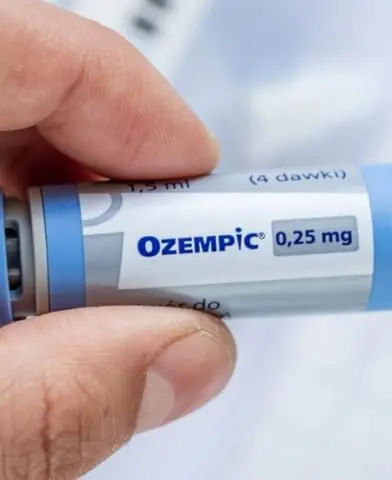
Drug Rehab Facilities Near Evanston, Illinois
Clinically Reviewed by:
Drug rehab facilities in Evanston, Illinois, address a critical need for individuals struggling with alcohol addiction in the region. With substance abuse posing significant health and social risks, the demand for effective detoxification services is evident.
Finding the right treatment center is paramount for effective treatment. Indiana Center for Recovery, located just across the border in Indiana, offers comprehensive rehab programs tailored to individual needs.

Key Takeaways
Drug rehab facilities in Evanston, IL, are crucial due to the rising prevalence of substance abuse in the region. Here is what you need to know:
- Rehab facilities play a vital role in helping people break free from addiction and reclaim control of their lives.
- Evanston offers various types of rehab centers, offering tailored services to meet diverse individual needs.
- Ensure quality care when choosing the right treatment facility.
Contact Indiana Center for Recovery at (844) 650-0064 today and get a personalized roadmap to addiction recovery.
Importance of Drug Rehab Facilities
Rehabilitation facilities play a vital role in addressing issues related to substance addiction and mental health disorders. Here’s a breakdown of the importance of rehab centers:
Treatment and Recovery
Rehab centers offer structured programs designed to address addiction or mental health issues through therapy, counseling, and other evidence-based treatments. These programs provide individuals with the tools and support needed to overcome their challenges and achieve long-term recovery.
Medical Care and Monitoring
Many individuals grappling with drug addiction or mental health disorders require medical supervision and support during detoxification and throughout their treatment journey. Rehab centers offer medical care and monitoring to ensure the safety and welfare of their patients.
Safe Environment
Rehab facilities provide a supportive and safe space where individuals can focus on their recovery without the interruptions and triggers of their everyday lives. This controlled environment helps to minimize the risk of relapse and promotes healing and growth.
Holistic Approach
Effective rehab centers often take a holistic method of substance abuse treatment, addressing the physical, emotional, and spiritual aspects of recovery. They may offer a range of therapies and activities, such as yoga, mindfulness meditation, art therapy, and nutritional counseling, to promote overall well-being.
Peer Support
Rehab facilities offer the opportunity for those affected to connect with others who are going through similar experiences. Peer support can be extremely valuable in fostering a sense of community, reducing feelings of isolation, and providing encouragement and inspiration during recovery.
Relapse Prevention
Through comprehensive treatment programs and ongoing support, rehab facilities help individuals develop the skills and strategies needed to prevent relapse and maintain their sobriety or mental health stability over the long term.
Education and Skill Building
Rehab centers provide education about addiction, mental health, coping mechanisms, and life skills that are important for maintaining recovery. By equipping individuals with knowledge and practical tools, rehab centers empower them to make healthier choices and navigate challenges effectively.
Types of Rehab Facilities
There are various types of rehab centers catering to individuals’ different needs and preferences. Some common types of rehab facilities include:
Detox Centers
Detox centers focus on helping individuals cope with withdrawal while their body metabolizes drugs or alcohol. They provide a supportive environment where individuals undergo detoxification while receiving medical care to manage withdrawal symptoms.
Inpatient Rehab Centers
Inpatient rehab centers, or residential treatment centers, offer intensive, 24/7 care for individuals requiring a structured and immersive treatment experience. Patients reside at the facility throughout treatment, participating in therapy sessions, group activities, and skill-building workshops.
Outpatient Rehab Centers
Outpatient treatment centers provide flexible treatment options for individuals who do not require 24-hour supervision. Patients attend scheduled therapy sessions and workshops while living at home or in a sober living environment, allowing them to maintain their daily responsibilities.
Dual Diagnosis Rehab Centers
Dual-diagnosis rehab centers specialize in treating people with co-occurring mental disorders and substance abuse issues. These centers offer integrated treatment programs that address both conditions simultaneously, promoting holistic recovery.
Holistic Rehab Centers
Holistic rehab centers emphasize healing the mind, body, and spirit through a variety of alternative therapies and holistic approaches. These may include yoga, meditation, acupuncture, nutritional therapy, and art therapy.
Teen Rehab Centers
Teen rehab centers cater specifically to adolescent girls and boys struggling with addiction. These centers provide age-appropriate treatment programs, therapy sessions, and educational workshops to address the unique challenges faced by teenagers in recovery.
Luxury Rehab Centers
Luxury rehab centers offer upscale amenities and accommodations, such as private rooms, gourmet meals, spa services, and recreational activities. These facilities cater to individuals who seek a high level of comfort and privacy during their recovery journey.
What to Expect in Rehabilitation
Entering a rehab center can be a significant step toward overcoming addiction and reclaiming control of one’s life. Here’s what you can generally expect from a drug and alcohol rehab center:
Assessment and Evaluation
Upon admission to a rehab center, individuals undergo a thorough assessment and evaluation process. This helps treatment professionals understand the severity of the addiction, identify any co-occurring disorders, and determine the most appropriate course of treatment.
Individualized Treatment Plans
Indiana Center for Recovery creates individualized treatment plans tailored to each person’s unique needs and situations. These plans may involve a combo of medication, therapies, and support services to address the specific challenges of addiction.
Therapeutic Interventions
Therapeutic interventions, such as individual therapy, group therapy, and family therapy, are integral components of rehab programs. These interventions allow individuals to explore underlying issues, learn coping skills, and build a supportive network.
Education and Skill Building
Drug rehab centers offer educational programs and skill-building workshops to empower people with the knowledge and practical skills necessary for maintaining sobriety. These may include relapse prevention techniques, communication skills, stress management strategies, and healthy coping mechanisms.
Privacy and Confidentiality
Rehab facilities prioritize privacy and confidentiality to create a safe, supportive, and non-judgmental space for individuals seeking treatment. Confidentiality ensures that personal information and experiences shared during therapy sessions remain protected.
Aftercare Planning
Before completing treatment, rehab centers help individuals develop aftercare plans to support their transition back to daily life. These plans may include ongoing therapy, participation in support groups, vocational training, housing assistance, and access to community resources.
Treatments Offered at Indiana Center for Recovery
Indiana Center for Recovery offers a variety of treatment options to address various aspects of addiction and promote recovery.
Detoxification
Detoxification, or detox, is the procedure of safely metabolizing and removing chemicals from the body under medical supervision. Indiana Center for Recovery provides medically managed detox to help individuals safely withdraw from substances while managing withdrawal symptoms.
Behavioral Therapy
Behavioral therapy focuses on recognizing and changing unhealthy behaviors associated with addiction. Drug rehab centers offer various forms of behavioral therapy, such as cognitive-behavioral therapy (CBT) and dialectical behavior therapy (DBT), to help individuals develop coping skills and relapse prevention strategies.
Medication-Assisted Treatment (MAT)
Medication-assisted treatment (MAT) combines FDA-approved medicines with behavioral therapy and counseling to address substance abuse disorders. Rehab facilities may offer MAT for individuals grappling with opioid or alcohol use disorder (AUD) to help reduce cravings and withdrawal symptoms.
Family Therapy
Family therapy involves including family members in the addiction treatment process to address family dynamics, communication patterns, and support systems. This therapy helps rebuild relationships, improve communication, and foster a supportive environment for recovery.
Dual Diagnosis Treatment
Dual diagnosis programs address both substance abuse and co-occurring mental health disorders simultaneously. Rehab centers offer integrated treatment plans to address the complex needs of those with dual diagnoses.
Holistic Therapies
Holistic therapies aim to focus on treating the whole person—mind, body, and spirit. These therapies, which may include yoga, meditation, art therapy, and acupuncture, complement traditional addiction treatment by promoting overall well-being and stress management.
Choosing the Right Rehabilitation Center
With several options available, it’s essential to consider various factors to ensure you choose a rehab facility that aligns with your unique needs and provides the support you require. Here are these factors:
Assess Your Needs
Begin by evaluating your needs and determining the type of treatment program that best suits you, considering factors such as the severity of your addiction, any co-occurring disorders, and personal preferences for treatment approaches.
Research Rehab Centers
Conduct thorough research on rehab facilities, gathering information about their treatment programs, staff qualifications, success rates, and patient reviews.
Check Accreditation and Licensing
Ensure that the rehab centers you are considering are accredited and licensed by reputable organizations, such as the Joint Commission or the Commission on Accreditation of Rehabilitation Facilities (CARF).
Review Treatment Approaches
Review the treatment approaches each rehab center offers, ensuring they align with evidence-based practices and meet your individual needs.
Consider Amenities and Environment
Consider the amenities and environment of each rehab center, paying attention to accommodations, recreational activities, and the overall atmosphere.
Verify Cost and Insurance Coverage
Verify the cost of treatment and inquire about health insurance coverage and payment options to ensure affordability and accessibility.
Read Reviews and Testimonials
Reading reviews and testimonials from former patients can help give insight into their experiences and the quality of care each rehab center provides.
Visit the Facility
Schedule a visit to the rehab centers you are considering, allowing you to tour the facility, meet the staff members, and ask any questions you may have in person.
By following these steps, you can make a sound decision and locate the right rehab center near Evanston, Illinois, that meets your needs and supports your journey to recovery.
Frequently Asked Questions (FAQ)
Drug rehab facilities offer a variety of treatments, including detoxification, behavioral therapy, medication-assisted treatment (MAT), individual counseling, group therapy, family therapy, dual diagnosis treatment, holistic therapies, and aftercare planning.
The duration of a typical treatment program at Indiana Center for Recovery varies depending on individual needs and the severity of the addiction. Programs can last somewhere from 30 days to 90 days or longer for intensive outpatient or residential treatment.
Many insurance companies provide coverage for treatments at Indiana Center for Recovery. Coverage varies depending on different factors, such as the individual’s insurance plans and the specific services needed. It’s important to verify coverage details with the insurance provider. At Indiana Center for Recovery, our insurance team can communicate with your insurance to ensure your treatment is covered.






 100% Confidential
100% Confidential